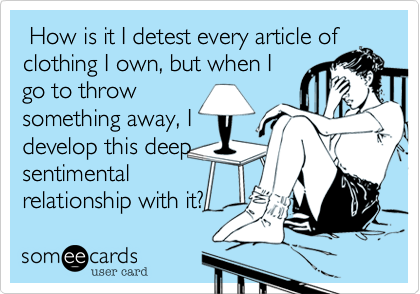
Through minimalism, each item I get rid of, I then have to decide where it should go next: in the trash, consignment store, Goodwill, or repurposed to someone else's household. Seattle already strives to be a very green city, with recycling and composting laws to reduce the amount of trash in landfills. Seattle Residents can view their Seattle Public Utilities newsletter this season to read about, "Where Does It Go? The Secret Life of Your Trash."
On average, each person in Seattle generates 2,200 pounds of recycling, food waste, and garbage each year...yikes! I know through recycling just old school papers and photos, that I had 200 pounds.
Transporting, processing and disposing of garbage is expensive. Therefore, it is important that we all understand where our trash goes, and our continued need to reduce the amount of waste that we generate. For those individuals that live in Seattle, you can use the new "Where Does It Go" tool for up-to-date information about which items go in the recycling, compost, or garbage bin at seattle.gov/util/wheredoesitgo
Ideas for reducing waste and ways to recycle and compost even more:
- Cleaning out your closets? Visit the Threadcycle web page: kingcounty.gov/threadcycle
- You can now donate ALL your unwanted clothing, shoes, purses, and linens.
- Items that are ripped, torn, stained or worn out can be recycled into industrial wiping rags, insulation, sound-proofing and stuffing
- Borrow and share: borrow that specialty baking pan from your neighbor and lend a ladder in return.
- Organize a clothing swap to refresh your wardrobe without sending any items to the landfill.
- For Seattleites, you can borrow tools, kitchen appliances, and extra chairs from one of Seattle's five tool libraries at seattle.gov/util/reducereuse
- Neighborhood tool libraries have more than the typical repair tools. Unique tools you can find cider-presses, food dehydrators, and candle making kits.
- Most tool libraries also offer classes: bike repair, earthquake retrofits, fixing appliances, chainsaw safety, and more.
- Located in West Seattle, Southeast Seattle, Captiol Hill, Phinney Ridge, and Northeast Seattle neighborhoods.
- Declutter your mailbox: stop clutter at the source by opting out of mail you don't want
- Visit seattle.gov/stopjunkmail for links to FREE opt out services
- Instead of buying brand new items when your favorites wear out, visit your local tailor, upholsterer, or shoe repair. They can give new life to your old stuff.
- Reuse and second use: shop at second use stores:
- Reuse: Thrift and consignment stores extends the life of shoes, clothes, and furniture.
- Remodeling: find vintage door knobs, floor tiles, countertops, and more at salvaged building supply stores.
- Re-fashion: Stained t-shirt; make it a DIY rag rug. Have a tear in a bed sheet; use it as a drop cloth for painting projects.
Many of you may be embarking on spring cleaning; therefore, I ask that you pause a moment before you instantly throw something in the trash, and consider if it could possibly be reused or recycled!






